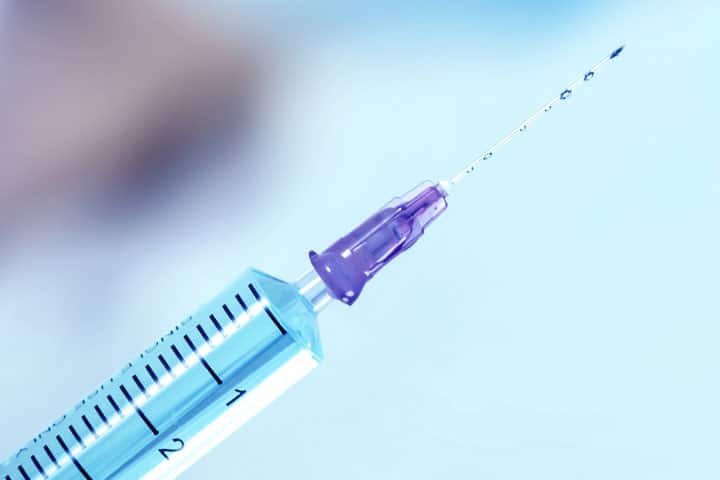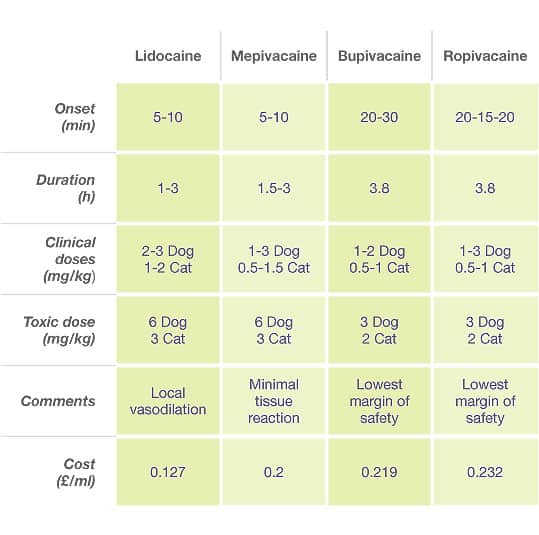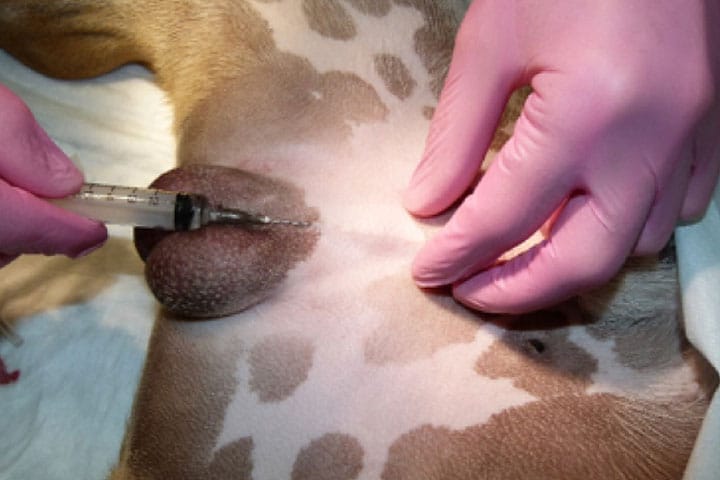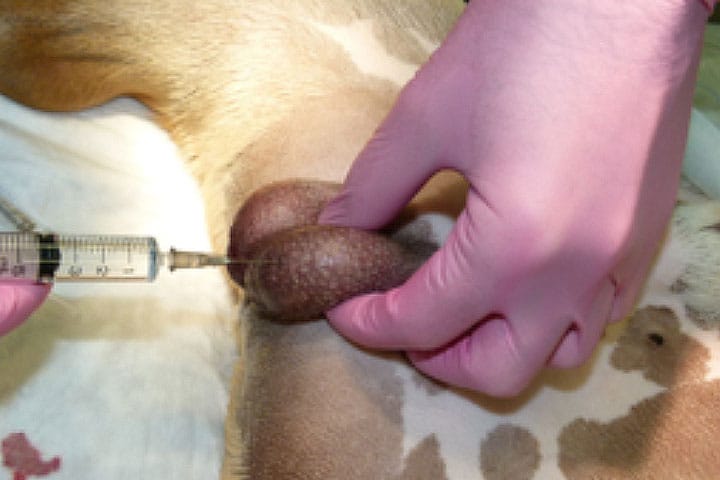
Male Orchiectomy is a very common surgical procedure in veterinary practice. The procedure can be extremely painful and although systemic pain medication is routinely included as part of the peri-anaesthetic protocol, some cases still respond to surgical stimulation and may display signs of pain during recovery period.
The use of local anaesthetic techniques provides additional analgesia and reduces anaesthesia requirements so common anaesthetic side effects can be reduced. Intra-testicular block for male is a common tool to complete a thorough approach to multimodal analgesia in our routine neutering procedures.
Evidence based medicine for male castration:
local anaesthesia rocks!
The most recent papers published on peer reviewed veterinary journals dating from 2012 up to 2017 on the subject of neutering male dogs and cats show a clear benefit using intra-testicular block on decreased haemodynamic changes during the anaesthesia (Huskonen et al 2013, Moldal et al.2013,) decreased the anaesthetic requirements (Fernandez Parra et al. 2017, McMillan et al. 2012) and provided postoperative analgesia demonstrated by the need of less pain medication and lower scores in the pain scoring system (Kushnin et al. 2017).
It is very significant that some authors (Kushnin et al. 2017) have looked at performing male castration under heavy sedation using only local anaesthesia with the possibility of converting it into general anaesthesia if persistent motion of the patient was observed. The conclusion of the study was that the use of pre-incisional and intra-testicular ropivacaine infiltration significantly delayed general anaesthesia, so obviously patients with local block would tolerate surgical manipulation to a greater extent, even when not fully asleep.
On the same subject, the use of lumbosacral epidural lidocaine injection (same as the intra-testicular injection) has been shown to be effective and although of a shorter duration, a very good alternative to systemic opioids for castration in cats (Fernandez Parra et al. 2017). A longer duration epidural combining lidocaine and buprenorphine or morphine preservative free, would provide good analgesia for intra and post-operative period. Nevertheless high expertise and skills are required to master the technique so epidurals may not be an option for the busy practitioner. Epidurals are beyond the scope of this article but stay tuned for future articles!
The only paper which failed to demonstrate any clinical benefit from the intra-testicular block (B.J. Stevens et al. 2013) did use a nonvalidated pain scoring system so the results may be questionable.
Conclusion:
The benefits of intra-testicular block outweigh the risks and costs so it has a place in the daily practice.
Techniques for male
Intra-testicular block
- Worth?
Definitely, as it is very effective. It provides intra-op and post-op pain relief
- Expertise?
None/minimal experience required
- Time to perform?
1-2 minutes
- Safety?
Like all local anaesthetic techniques, always aspirate before injecting
- What drugs?
Although the injection of bupivacaine and ropivacaine is effective and indicated (Stevens et al. 2013, Kushnir et al. 2017) the high vascularisation of the testicle makes the use of those local anaesthetics slightly riskier than the injection of lidocaine due to the potential for cardiotoxicity. We advise to perform the intratesticular block with lidocaine
- Step by step:
- Clip and prep both testicles aseptically
- Grab the testicle firmly
- Place the needle (25g) in the caudal part of the testicle aiming for the spermatic cord
- Aspirate to make sure no blood is withdrawn by the syringe
- Inject a suitable amount of lidocaine until increased resistance is felt
- Expect back pressure while withdrawing the syringe, the testicle should feel turgid after injection otherwise it may indicate failure of technique
- Repeat with the other testicle
- 0.05ml/kg per testicle of lidocaine 2% can be used in cats, in case of dogs 0.08ml/kg per testicle.



Case Advice or Arranging a Referral
If you are a veterinary professional and would like to discuss a case with one of our team, or require pre-referral advice about a patient, please call 01883 741449. Alternatively, to refer a case, please use the online referral form
About The Discipline
Anaesthesia

Need case advice or have any questions?
If you have any questions or would like advice on a case please call our dedicated vet line on 01883 741449 and ask to speak to one of our Anaesthesia team.
Advice is freely available, even if the case cannot be referred.
Anaesthesia and Analgesia Team
Our Anaesthesia and Analgesia Team offer a caring, multi-disciplinary approach to all medical and surgical conditions.